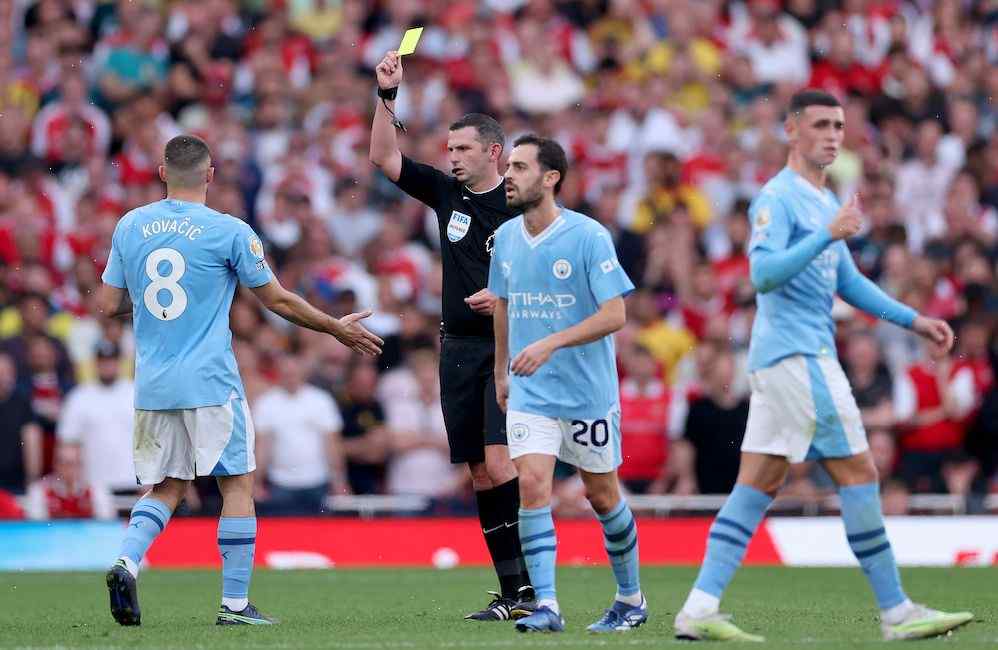In a controversial move, former Premier League referee Mark Clattenburg has criticized current referee Michael Oliver’s decision to award Arsenal a penalty during their recent match against Manchester City. The incident has sparked heated debate among fans, players, and officials alike, raising questions about the role of referees in top-tier football matches.
During the match, which took place on February 16th, Arsenal forward Pierre-Emerick Aubameyang scored a late equalizer from the spot, following a contentious handball call against Manchester City defender Kyle Walker. The goal led to a thrilling 2-2 draw, but Clattenburg believes that the penalty should never have been awarded.
Speaking to reporters, Clattenburg asserted that the ball touched Walker’s chest rather than his arm, making it a incorrect call. He further stated that Oliver’s decision was influenced by the fact that the foul occurred in front of the Arsenal bench, suggesting that the referee may have been swayed by the emotions of the home team.
Clattenburg’s comments have ignited a firestorm within the football community, with many pundits and ex-players coming to Oliver’s defense. Former England striker Alan Shearer tweeted that Clattenburg’s remarks were “pathetic” and showed a lack of understanding of the game’s rules. Meanwhile, Arsenal manager Mikel Arteta maintained that his side deserved the victory, citing several other missed calls throughout the match.
The incident highlights the intense scrutiny that referees face in elite sports competitions like the Premier League. With millions of viewers worldwide and vast sums of money at stake, even slight errors in judgment can have significant consequences. As technology continues to advance, there has been growing discussion around implementing video assistant refereeing (VAR) systems to minimize mistakes. However, implementation has been slow due to concerns regarding accuracy and consistency.
Off the pitch, the dispute has also reignited discussions surrounding environmental sustainability in sports. Last year, the Premier League announced plans to become carbon neutral by 2040, with initiatives including renewable energy sources, reduced waste, and fan education programs. While laudable, critics argue that these efforts fall short considering the massive carbon footprint generated by player transfers, global broadcasting operations, and spectator travel. In light of the climate crisis, some experts suggest drastic measures such as limiting international tournaments or introducing eco-friendly stadium designs.
As passions cool down, it becomes clear that the dustup involving Clattenburg and Oliver serves as a microcosm of broader debates within the sports world. From referee accountability to environmental responsibility, the issues extend beyond the playing field and into our daily lives. Perhaps, as we move forward, we can find ways to balance our love of competition with a commitment to fair play and sustainability.

